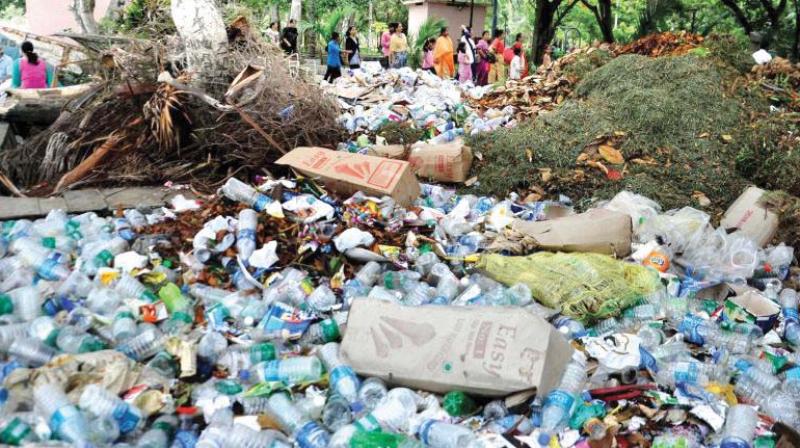The last straw: Why India needs freedom from plastic

Prime Minister Narendra Modi, in his Independence Day speech earlier this week, urged the people to make India free of single-use plastic by October 2.
This is a pledge we should make and move towards, an effort that requires every citizen, municipality and gram panchayat to work in tandem for a common goal.
Plastic waste is a global problem and has been discussed in state, national and international forums.
The plastic industry is seen as a big contributor to India’s economic growth. By 2020, India is likely to export USD 12 billion worth of plastic, the quantity of which is likely to double in the next five years. However, this economic growth means the production of 25,000 tonnes of plastic every day. Delhi, Kolkata, Ahmedabad and Bengaluru are the Indian cities that generate the highest amount of plastic waste.
Single-use plastic refers to any form of the substance that can only be used once before it ends up in landfills, and while polyurethane bags spring to mind, these represent only a fraction of overall plastic waste. In the landfills, where it is left to degrade, the chemicals enter the soil to form leachate, that pollutes groundwater and eventually, makes its way into the food cycle. Plastic waste is also burnt on open ground, resulting in the emission of greenhouse gases into the atmosphere. Large quantities are also dumped in the sea, where it has proved very harmful to marine life.
The coastline of the Arabian sea, along the Western Ghats ,is among the most polluted in the world.
Households are the largest generators of plastic waste and it is upto the individual to segregate waste at home and in the office. Plastic should be handed over to dry waste collection centres, recycling units or to ragpickers. Try to avoid single-use plastic carry bags, reuse them as far as possible. Or, even better, switch to eco-friendly or green products.
Municipalities should set-up or facilitate decentralised Dry Waste Collection Centres, Dry Waste Aggregation Facilities and Dry Waste Processing Centres, based on waste generation in the area. In this regard, Bengaluru is leading by example for the rest of the country.
Companies, brand owners and manufacturers should support all the stakeholders in the value chain for the successful implementation of Extended Producers Responsibility. The government should encourage and facilitate schemes through MSME sector. This is to provide opportunities for single-use plastic manufacturers, retailers and traders to switch to more sustainable industries. By harnessing start-ups, young India will also have a role to play in a new way of doing things.
Together let's build a clean, green and sustainable India by setting an example for the rest of the world.
(The writer is co-founder, Project Swachha Bengaluru, Swachha-NGO)

